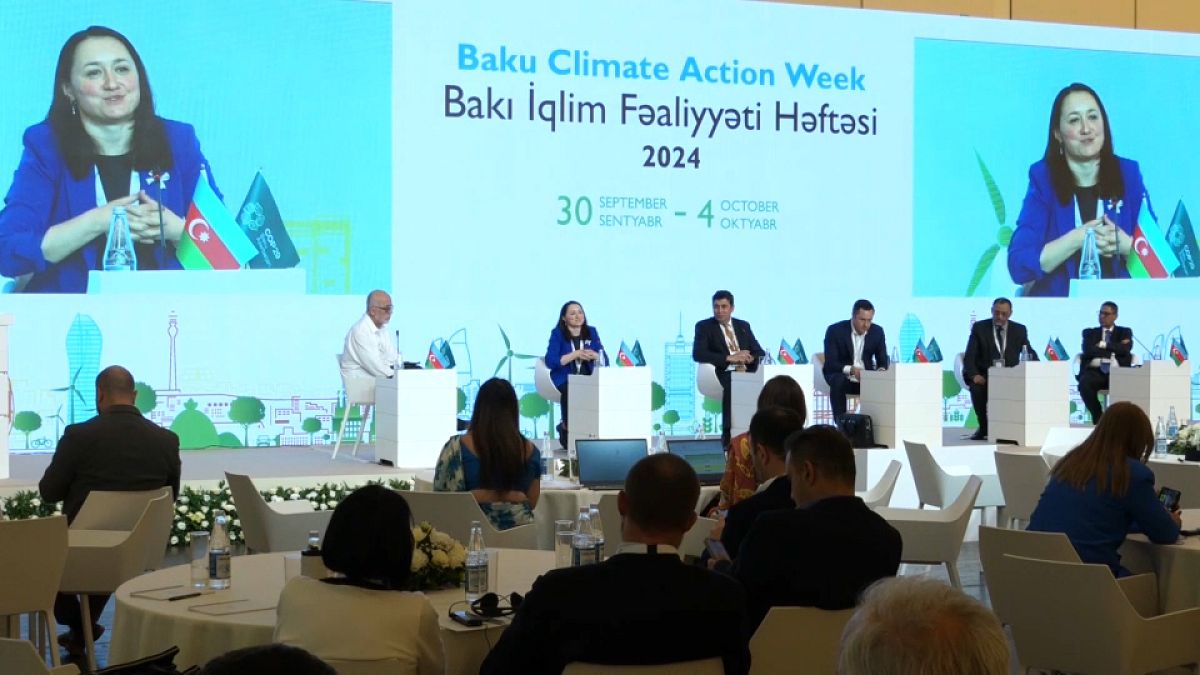The Baku Climate Action Week held ahead of COP29 highlighted the impact of extreme weather events caused by the climate crisis on global supply chains. Speakers at the summit warned that ports, which handle around 80% of global trade, are particularly vulnerable to disruptions from hurricanes and rising sea levels. This can lead to costly downtime and hinder the flow of goods, including essential items like food and medical supplies, affecting countries’ GDP. Researchers estimate that €73 billion of global trade is at risk annually due to climate-related disruptions at ports. To address these challenges, a non-profit organization focusing on ports will publish a report for COP29, showcasing how some ports are adapting to climate change and aiming to inspire others to prepare for the future.
The summit also delved into how technology, particularly artificial intelligence, could help mitigate the impacts of climate change. Google highlighted how its technology has helped reduce carbon emissions by guiding drivers to avoid traffic. Azerbaijan, as the host of COP29, plans to advocate for knowledge hubs to foster information sharing among communities regarding the impacts of climate change on water basins. Officials emphasized that these discussions are not just talk but will lead to tangible progress, such as establishing cooperation frameworks, policies, and data collection to address water basin issues. This proactive approach aims to drive real change and create a more sustainable future.
While some may question the effectiveness of annual climate summits, the Climate Impact Platform (CGIAR) stressed that pressure from citizens and civil society has shown to be influential. The organization cited the example of Egypt, where progress was made regarding the implementation of a loss and damage fund, despite initially slow advancements. This demonstrates that although progress may take time, advocacy for faster change can yield positive results. By engaging with stakeholders from policy and the private sector, the BCAW aimed to lay the groundwork for a successful COP29, scheduled for 11-22 November.
The importance of ports as a critical component of global trade and supply chains cannot be overstated. Ports handle the majority of international trade, making them essential for the movement of goods around the world. However, the increasing frequency and intensity of extreme weather events due to the climate crisis pose a significant threat to port operations. Hurricanes, rising sea levels, and other climate-related disruptions can lead to costly downtime, interrupting the flow of essential goods and harming countries’ economies. As a result, it is crucial for ports to adapt to climate change and enhance their resilience to withstand future challenges.
Technology, particularly artificial intelligence, has the potential to play a key role in mitigating the impacts of climate change on various sectors, including transportation. By leveraging technology like AI, companies and governments can optimize operations, reduce carbon emissions, and improve overall resilience to climate-related disruptions. Additionally, initiatives such as knowledge hubs can facilitate information sharing among communities, enabling them to better understand and address the impacts of climate change on water basins. By fostering collaboration and data-driven decision-making, these efforts can lead to tangible progress in adapting to and mitigating the effects of climate change.
The discussions and initiatives undertaken at the Baku Climate Action Week aim to not only raise awareness of the challenges posed by the climate crisis but also to drive concrete action towards creating a more sustainable future. By bringing together key stakeholders from policy, the private sector, and civil society, the summit lays the groundwork for a successful COP29 in November. Through collaboration, innovation, and a commitment to addressing climate change, there is the potential to foster real progress and positive change on a global scale. As we continue to navigate the challenges of the climate crisis, it is essential to prioritize resilience, adaptation, and sustainability in order to build a more resilient and sustainable future for all.











